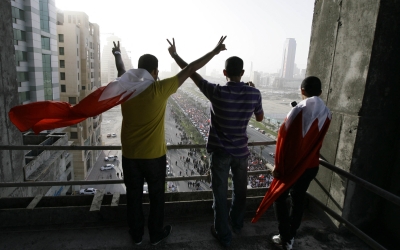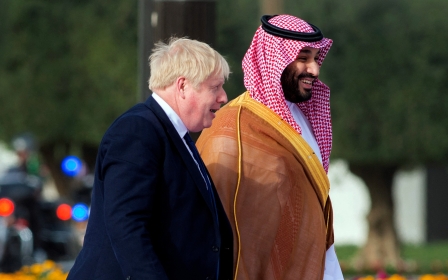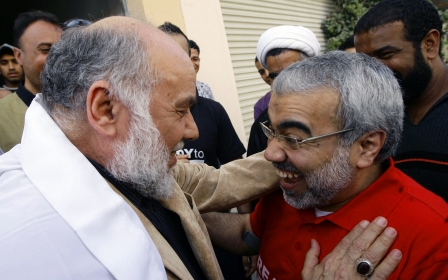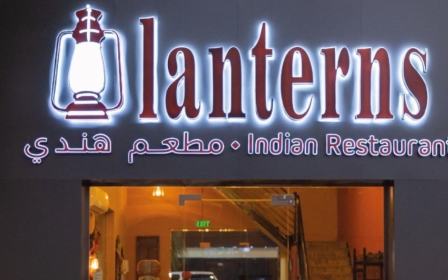Bahrain: Activists condemn UK visit by royals for horse show

Activists have condemned a visit by members of Bahrain's ruling family to the UK to attend a horse show that started on Thursday.
A number of Bahraini royals, including King Hamad bin Isa Al Khalifa, travelled to the UK to attend the Royal Windsor Horse Show, held between 12 and 15 May.
The event is a key date in the British and Bahraini royal families' summer schedules. King Hamad regularly attends and Bahrain sponsors competitions at the event.
However, a number of organisations, including the Bahrain Institute for Rights and Democracy (Bird) and the Campaign Against Arms Trade (Caat) protested outside the event, pointing out that the UK was rolling out the "red carpet" for the Bahraini royals even as political prisoners in the kingdom continue to suffer abuse and false imprisonment.
New MEE newsletter: Jerusalem Dispatch
Sign up to get the latest insights and analysis on Israel-Palestine, alongside Turkey Unpacked and other MEE newsletters
Caat described the event as "sportswashing" and pointed out that a number of events were even named after Bahrain, including the “Kingdom of Bahrain Stakes for the King’s Cup”.
"Ruthless Bahraini dictator, King Hamad gets red carpet treatment whilst his victims, like Dr AlSingace on a 300+ day hunger strike, suffer appalling abuse in Bahrain," tweeted Bird. "We won't let this stand."
Hunger strike
Abduljalil al-Singace is director and spokesperson of the Human Rights Bureau of the Haq Movement for Civil Liberties and Democracy, and has been in jail since 2011, when he was sentenced to life in prison on terrorism allegations in the wake of anti-government demonstrations.
He began a hunger strike in July 2021 after the confiscation of research materials from his cell in Jaw prison, in eastern Bahrain.
Singace reportedly suffers from chronic medical conditions, including post-polio syndrome, and requires crutches or a wheelchair to move. According to a communication sent by three UN special rapporteurs to the Bahraini government, his health has severely worsened during his hunger strike.
The rapporteurs said that since October 2021 there had been "a severe drop in his blood pressure levels, episodes of vertigo, seizures, shortness of breath and a drop in his oxygen levels, requiring him to use an oxygen mask".
They added that he was refusing both intravenous support and vitamin supplements and that his blood sugars were "dangerously low".
"We wish to urgently renew and underscore our serious concerns relating to the health of Mr Singace and the confiscation of his research materials, and express fresh concern as to the alleged suspension of his video calls with his family," wrote the rapporteurs.
"In expressing these concerns, we wish to reiterate our strong belief, as previously communicated to your Excellency's Government, that the sentence under which Mr Singace remains detained is based solely on his legitimate, peaceful advocacy for the respect and protection of human rights in Bahrain."
Singace was among 13 anti-government protesters who were arrested and convicted on charges that included "setting up terror groups to topple the regime".
Since the uprising, Bahrain has outlawed opposition parties and arrested dozens of activists, sparking international criticism.
Middle East Eye delivers independent and unrivalled coverage and analysis of the Middle East, North Africa and beyond. To learn more about republishing this content and the associated fees, please fill out this form. More about MEE can be found here.





